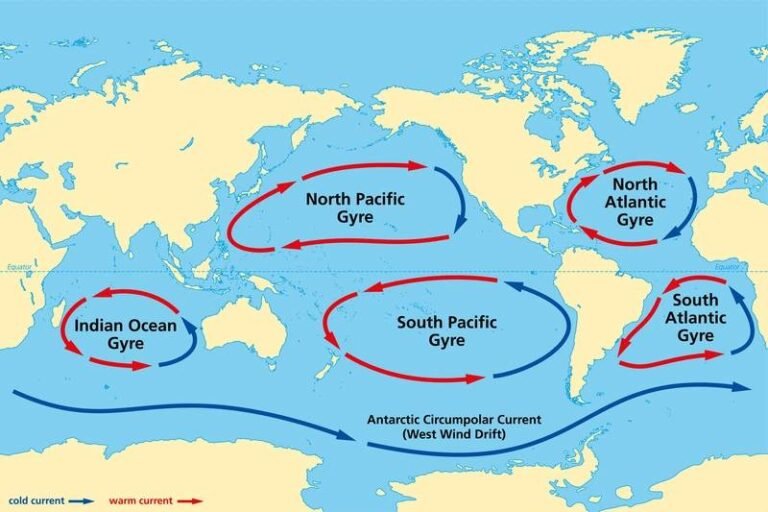New Research Shows Antarctic Ice Melting Could Slow Down Currents
A recent study from the University of Melbourne in Australia has shed light on the potential impact of Antarctic ice melting on the Antarctic Circumpolar Current (ACC). The research suggests that as more Antarctic ice melts and the ocean becomes flooded with meltwater, the ACC could slow down.
The Antarctic Circumpolar Current
The ACC, located south of Australia, is a powerful ocean current that flows around Antarctica, connecting the Pacific, Atlantic, and Indian Oceans. It is one of the strongest currents on Earth, acting as a barrier that separates Antarctica from its neighboring continents.
Despite previous theories that suggested climate change would cause the ACC to speed up, recent research has shown that its strength has remained relatively stable. However, the impact of melting Antarctic ice on the current has been less understood.
Implications of a Slowing ACC
The new study, published in Environmental Research Letters, predicts that the ACC could slow down by up to 20% by 2050 if high carbon emissions continue. Researchers attribute this potential slowdown to the melting ice around Antarctica.
If the ACC weakens, warmer water could migrate towards Antarctica, leading to further ice melting and a potential feedback loop. This could have implications for the delicate Antarctic ecosystem, potentially allowing invasive species to reach the continent and disrupting the food web.
Global Consequences
A slowdown in the ACC, coupled with a decline in its strength, could also reduce the ocean’s ability to absorb heat and carbon from the atmosphere. This could accelerate climate change both on land and in the ocean, with far-reaching global repercussions.
To mitigate the potential impacts of melting Antarctic ice on the ACC, the researchers emphasize the importance of reducing greenhouse gas emissions. By limiting the ocean’s absorption of atmospheric heat, we can help prevent further destabilization of the Antarctic ecosystem.
While the exact extent and location of the ACC slowdown remain uncertain, taking action to curb emissions is crucial in safeguarding Antarctica’s future. By addressing the root causes of climate change, we can work towards preserving the integrity of this vital ocean current and the ecosystems it supports.

